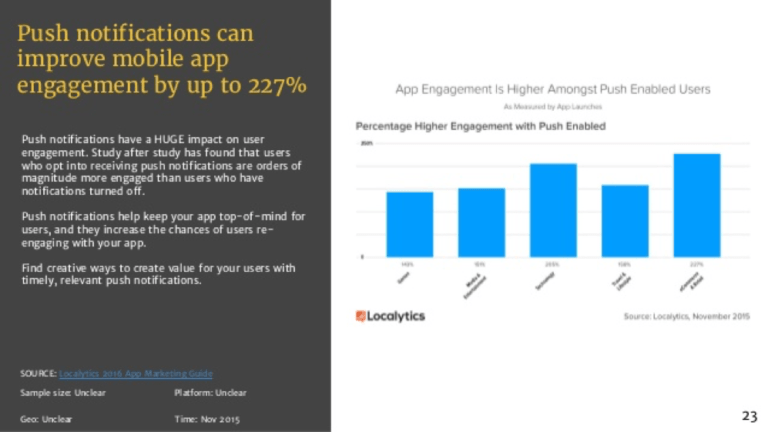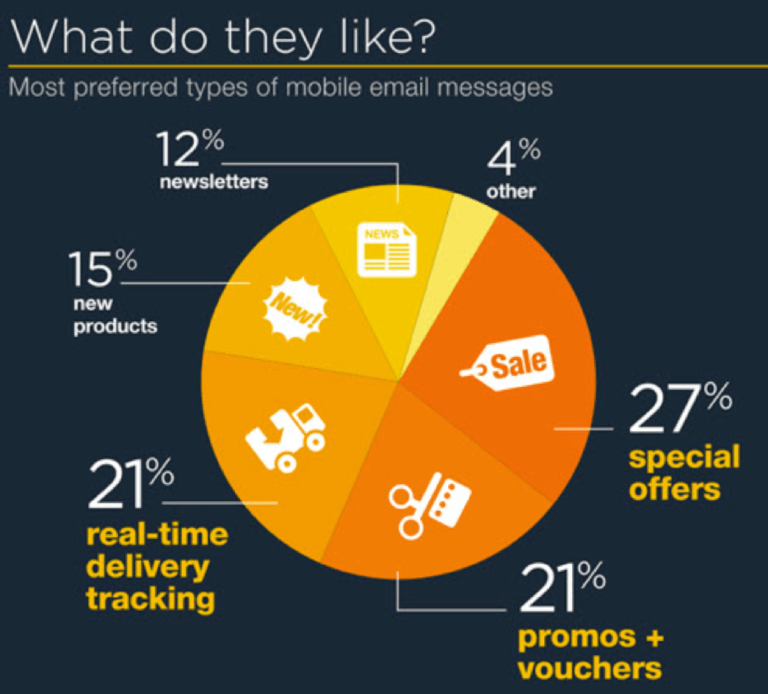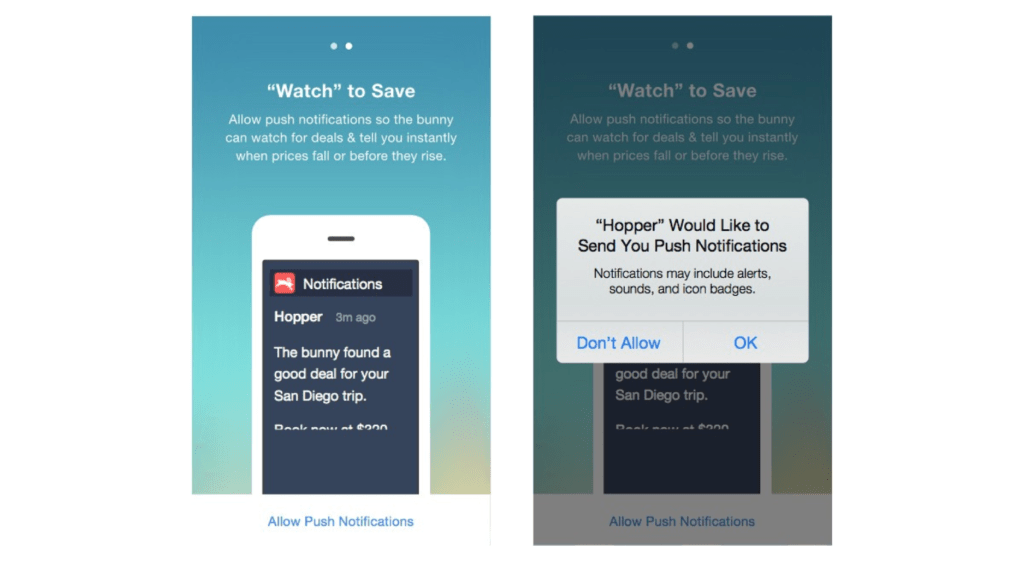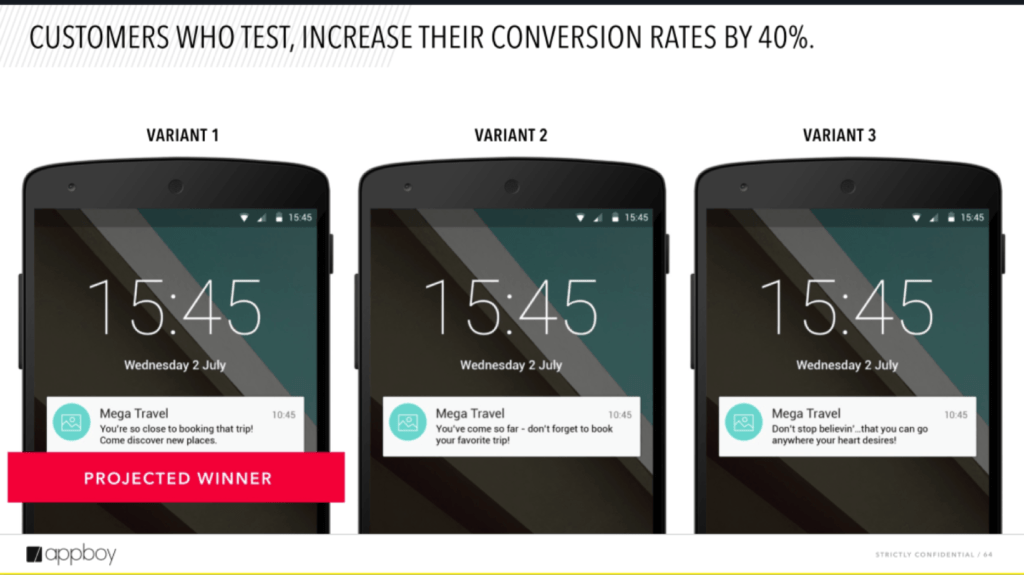Push notifications are a powerful tool to attract users. This is available even more with rich media features provided by iOS 10. Now that we reached this topic, have you ever wondered why push notifications are named this way? The answer is that they can be very “pushy” if they are used in the wrong manner. Maybe this is the reason why some users opt – out. Or there are other motives than that? Well, we all gathered here to find out everything related to this dilemma and of course, to solve it. Keep it close because it’s going to get interesting and feel free to share your story at the end of the article. We would love to read it.
Why App Users Opt – Out Push Notifications?
Let’s start with the root of the problem. Every time you want to find solutions for an issue you must understand what cause it. There is the possibility that you induced this decision. Maybe your messages didn’t provide enough value or they weren’t personalized enough. On the other hand, it may have nothing to do with your brand. Perhaps previous bad experiences with other apps made them to disable this option. Either way, if you check the chart below you can see that it is worth the effort to convince them to reverse their choice.

How To Make Them Opt Back In?
Now let’s remove all these possible sources of the main problem. First of all, the data you have about your users is priceless when it comes to reach your audience. It will make you understand which users to address and moreover, it will help you give a personal touch to all your messages. Calling your customers by their names and showing that you know their preferences it will make a big difference in your entire strategy.

Image Source: http://andrewchen.co/why-people-are-turning-off-push/
1. Define Who Opt – Out
First of all, who is your target for this plan? Start by segmenting your customers who opted out. From here, select the ones that are engaged with your app and for one reason or the other, they decided to cancel your possibility of sending push notifications. For the other ones think about a solution to increase the retention rate and to bring them back into the app. There are different types of strategies for each problem.
2. Pick a Different Channel To Communicate
Giving them a taste of what kind of messages are you sending would be the answer for convincing them to opt-in for push notifications. There are various channels you can use for reaching your users with relevant content and to inspire them to try also the push notification road. Furthermore, studies show that multi-channel messaging increase users retention by 130%.

Image Source: https://www.appboy.com/blog/multi-channel-messaging-can-increase-customer-retention-by-130/
In – App Messaging
Few months ago we covered both techniques, in-app messaging and push notifications in the same article for this main motive. If customers opt – out push notifications you can use in-app messages for showing them why it is useful for them to change their decision. For this strategy to work, your target for this campaign has to use frequently your app. This is why we chose already engaged users for this re-permission campaign.
Email
Give your customers reasons to change their mind by sending them intriguing e-mails. Email marketing is meant to remember your users about the value provided by your app and the reasons why they downloaded it in the first place. You can check the best practices of this method and what kind of content users appreciate in a previous article on AppSamurai. You can promise them more if they enable push notifications.

Image Source: http://www.emailmonday.com/mobile-email-usage-statistics
SMS Marketing
Sending SMS for showing the advantages of push notifications is another solution. But remember, if you don’t consider the timing and frequency there is a big chance to make users to uninstall the app, which is worse than not allowing push notifications.
3. Incentivize Users
It is hard to start your strategy but some benefits offered to your users will help you move things around.
Give Something Valuable (Discount, Upgrade, Reward etc.)
There is always an easy way to solve a problem. Offering them valuable rewards for enabling push notifications it is almost certainly the fact that they will reconsider their decision. Of course, this will happen only if your bonuses match their needs. Again, knowing your audience is the secret in every strategy.

Image Source: http://www.business2community.com
4. Test Your Message
Now that you have your plan on the right track, try different types of messages to see which one will have better results

Multivariate Testing Strategies
With multivariate testing, it is better to choose your objectives really careful and to create appropriate samples in order to receive real answers. Also, the testing period is very important and if you have the chance, a control group will show you the appropriate variant for your push notification as you can see in an article on AppBoy.
5. Simplify Opt-In Process
Maybe there are users who decide that it is good for them to go back to push notifications, but how to do that? The settings page is so far away and there are so many buttons there. Maybe some other time they will do that. No, there won’t be another chance. Act now!
Guide To Access Opt-In Page
If you want somebody to follow your lead, you just need to show him the way. This happens with push notifications, too. Just look how interesting is the small tutorial for enabling push notification provided through a link right in the app store description by Rue La La, a shopping app, after promising special discounts for the ones that opt-in for receiving messages. Smart strategy!

Image Source: https://www.urbanairship.com/blog/increase-push-notification-opt-in-rates-with-these-two-tactics
Provide Customizable Preferences
Adding a customized push notification preference panel will impress your users and at the same time it will make easier for them to opt back in than entering the general settings for this purpose. Just announce them the benefits they receive if they choose to enable the messages flow and show them the shortcut to do that.

Image Source: https://www.urbanairship.com/blog/increase-push-notification-opt-in-rates-with-these-two-tactics
Final Thoughts
In this stressful world, we all try to remove irritating factors. Keeping all push notification you send to your users far from this impression will increase your chances to win them back. Test all your versions and make sure it contains useful and personalized content. More solutions are detailed above, but take a second to consider what would be your feelings if you would receive a message similar to the one you are about to send to your customers and decide if it is the right approach.





